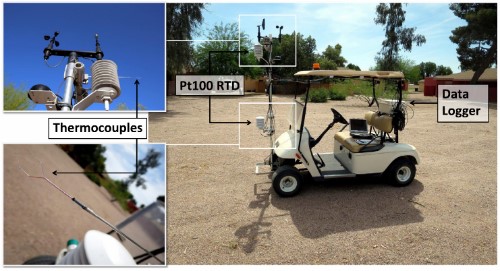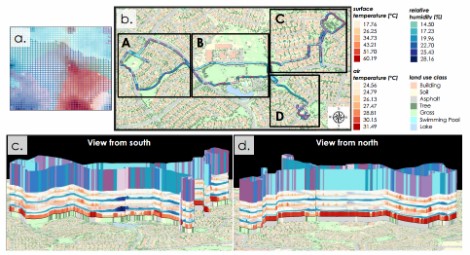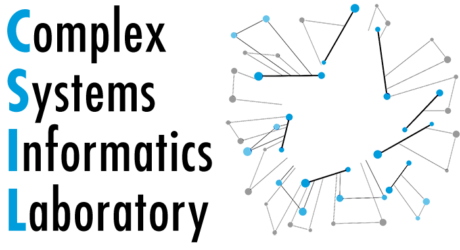In collaboration with the Central Arizona Phoenix Long Term Ecological Research observatory (CAP-LTER) and the UREx Sustainability Research Network led by Arizona State University, we are conducting field work and modeling science to understand the impact of urban climate on infrastructure; water and energy use; and human health, especially at the “human scale” of 1-10 meters where people live and make most of their important decisions.
Our urban flux tower and microclimate observations are available for several years at fine urban scales via CAP-LTER. A new method for mobile platform microclimate and air quality data processing and visualization has been developed and is being published in a new software package, TraVIS, in partnership with the Technische Universitat Kaiserslautern. This mobile sensor platform capability is relevant for canopy ecology, microclimate, air quality, and precision agriculture applications.
Power grids, flood control systems, and water distribution infrastructure are affected by climate- especially heat. Cascading failures and maintenance problems will increase as our cities grow hotter. We are building new data sources and models for these systems so engineers and planners can minimize cost and improve service quality in the 21st century.


Funding is provided by the National Science Foundation, local utilities like the Salt River Project, and private partners.
Links to Resources
Contact
Sponsors and Funding
National Science Foundation and Salt River Project along with private partners:
EF-1049251, SCC-1831475,EAR-1360509, BCS-1026865, ENG-1509077, GEO-0816168, BCS-1444755
WANT TO BE INVOLVED?
Contact the Complex Systems Informatics Laboratory at the NAU School of Informatics, Computing & Cyber Systems if your passion lies in making a difference in the field of Informatics.
